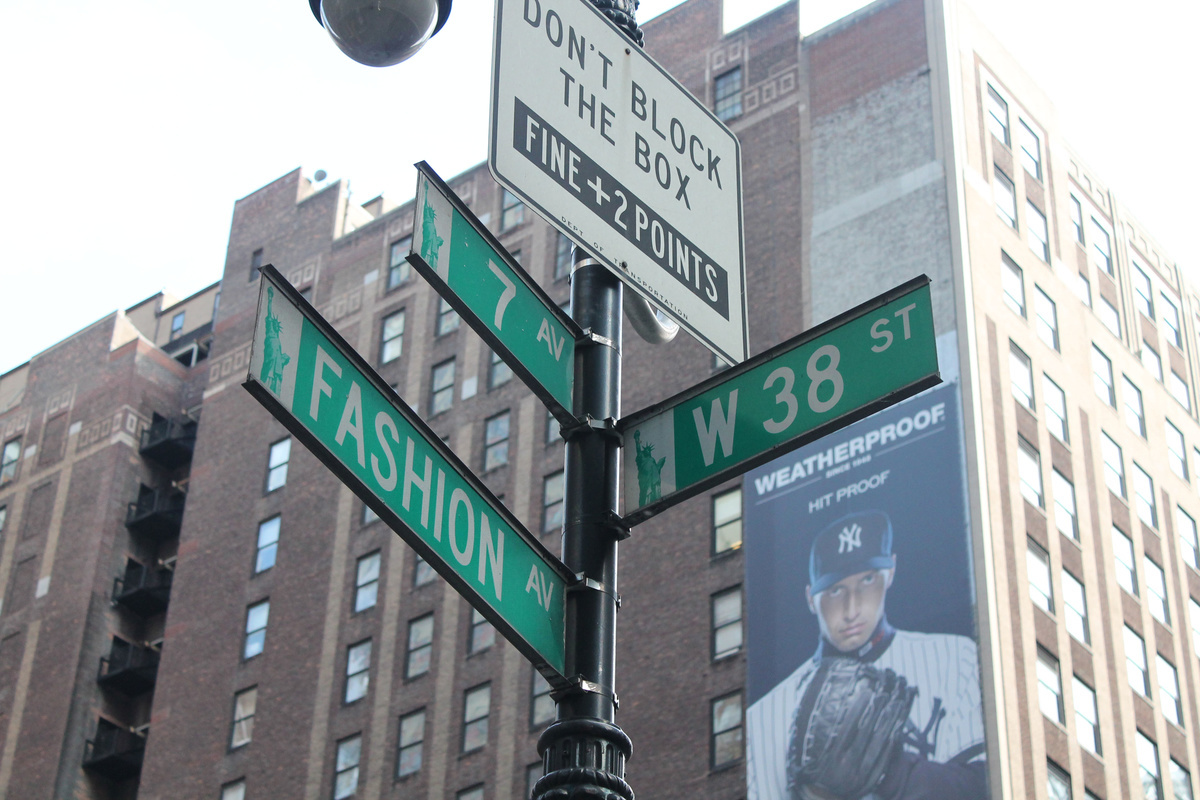Let’s break down the math for a summer internship in New York. The average rent in the city is now over $3k per month. Add in a $112 monthly metropass, a conservative $200 a week for weekly food and expenses, and you’re already at nearly $4k. Assuming you manage to crash on a friend’s couch in Bushwick, you would still struggle to pay the basic cost of living without having some (family) support or taking on another job. Those with the luxury to stack up serial internships before graduating from college are supremely better positioned to make it than young people juggling their internships with jobs, not to mention student loans.
In the UK, Alexander McQueen came under fire last year for circulating an ad which called for a “talented knitwear student” to work five days a week for up to 11 months without pay, and faced charges again this February from a former intern that claimed £6,415 in “lost wages.” This series of vocal pushbacks against what some feel is the exploitative nature of unpaid internships has started to turn the tide of England’s labour laws in favor of young fashion industry hopefuls. But stateside, reform efforts are moving much more slowly.
Is New York preparing its young creative class for successful careers in a cutthroat industry, or creating a system based on unfair hierarchies?
In the now-infamous Condé Nast case last year, two former interns filed a class action lawsuit against the publishing giant, each claiming they were paid less than $1 an hour for their summer work. One edited and proofread New Yorker columns, the other worked 12-hour days in W’s accessories department only to be denied a recommendation needed for college credit. Condé responded to these accusations by scrapping its internship programs entirely. Many lamented that the highly coveted positions responsible for launching some of the industry’s brightest stars were spoiled by a few bad eggs who weren’t willing to accept the industry’s realities. Some applauded the former interns for challenging entrenched paradigms, others simply stated, “If you don’t like it, you can leave.”
While internship stipends and hourly wages are becoming increasingly common in the wake of the Condé suit, fashion internships remain very much the territory of the elite. Clarke Rudick, a student at NYU’s Gallatin School of Individualized Study, has been interning in fashion since he was just 15-years-old, at companies like Phillips Van Heusen, Nina Ricci, and Bruce Weber’s studio. Like Emily Weiss (ex-Vogue intern, now editor of fashion blog Into The Gloss) in her appearances in ‘The Hills’, Clarke could be characterized as a “super-intern.” Articulate and incredibly personable, Clarke is also refreshingly frank about the fact that his family’s connections and the advantages of his Upper East Side upbringing have undoubtedly played a part in his ability to build a stellar resume.
The fashion industry offers little financial compensation to its interns but frequently hires from this intern pool for the few secure, full-time positions it does have, a cyclical paradox that marks those that can afford to intern for free as more valuable candidates. “Of course there are exceptions to the rule, but there’s no denying that you’re more likely to secure an internship if it’s through a connection, and that you’re also more likely to excel at your internship if you don’t have the stress of financially supporting yourself weighing on your shoulders,” Clarke observed.
For those looking to launch a creative career in the City that Never Sleeps, these are difficult lines to tow. Is New York preparing its young creative class for successful careers in a cutthroat industry, or creating a system based on unfair hierarchies? And if you’re caught between dreams of becoming the next Alexander Wang and the reality of ballin’ on a Burger King budget, just what are you supposed to do about it? Take a lesson from just about everyone camped out on Canal Street: you’ve gotta hustle.
Last summer I interned full unpaid 40-hour weeks, time split between multiple media companies as an online editorial intern. I was able to sharpen my skills as a writer, copy editor, interviewer, and dumpling taste-tester by working alongside some of the most passionate and talented content producers in the city. When one work day stopped, another started: I hopped straight on the 6 train uptown to Urban Outfitters’ 5th Avenue location for an unorthodox 8 pm – 1 am shift. I’d arrive home in Bushwick at 2 each morning to wake up and do it all again. My 2013 tax return paid three months’ rent and utilities, while those night shifts were just enough to cover food (shout out to Trader Joe’s frozen hash browns forever), transportation, and a couple of beers at Enid’s if I was feeling spendy. Was it brutal? Yes. Was it worth it? Incredibly so.
Living on a shoestring was difficult, but forced me to recognize the value and make the most I could of my experiences. I’m beyond fortunate that those I interned with and for saw the sacrifices I made with that same sincerity, and have since held me down in ways I could never imagine. Although I’ve only graduated from college less than a month ago, I’ve already received multiple full-time offers from some of the most dynamic companies in the industry. If you want to work in fashion, don’t wait for New York to make things completely accessible for you; they might never be.
Credits
Text Emily Manning
Photography Elvert Barnes
